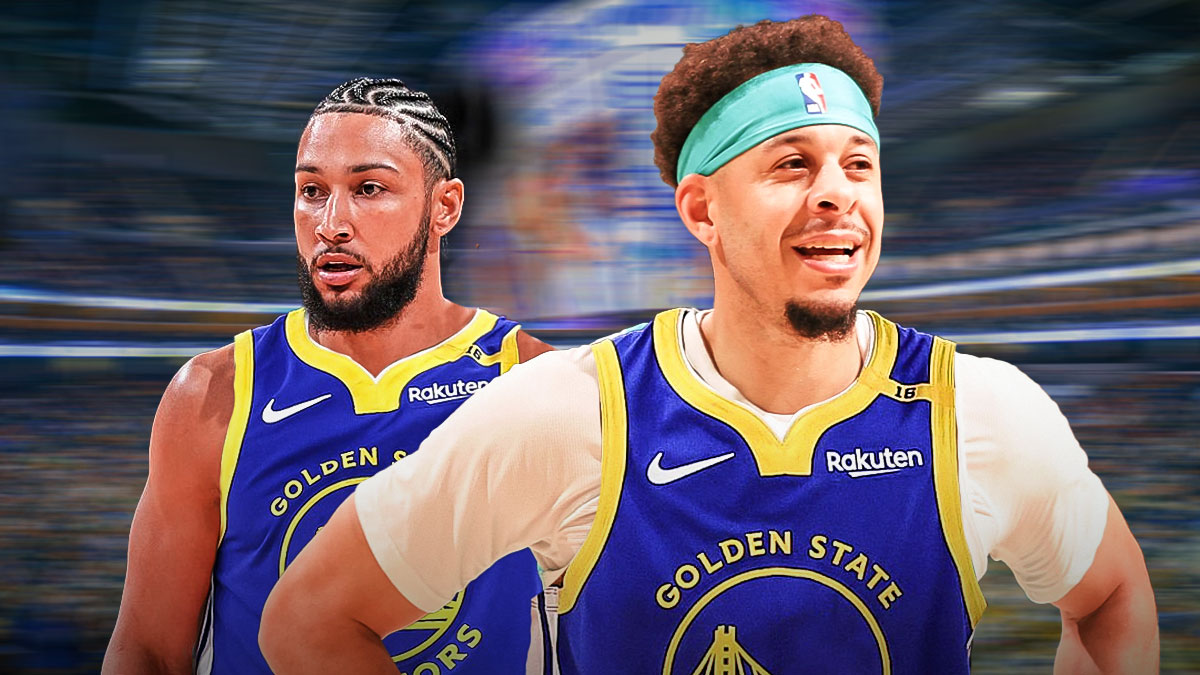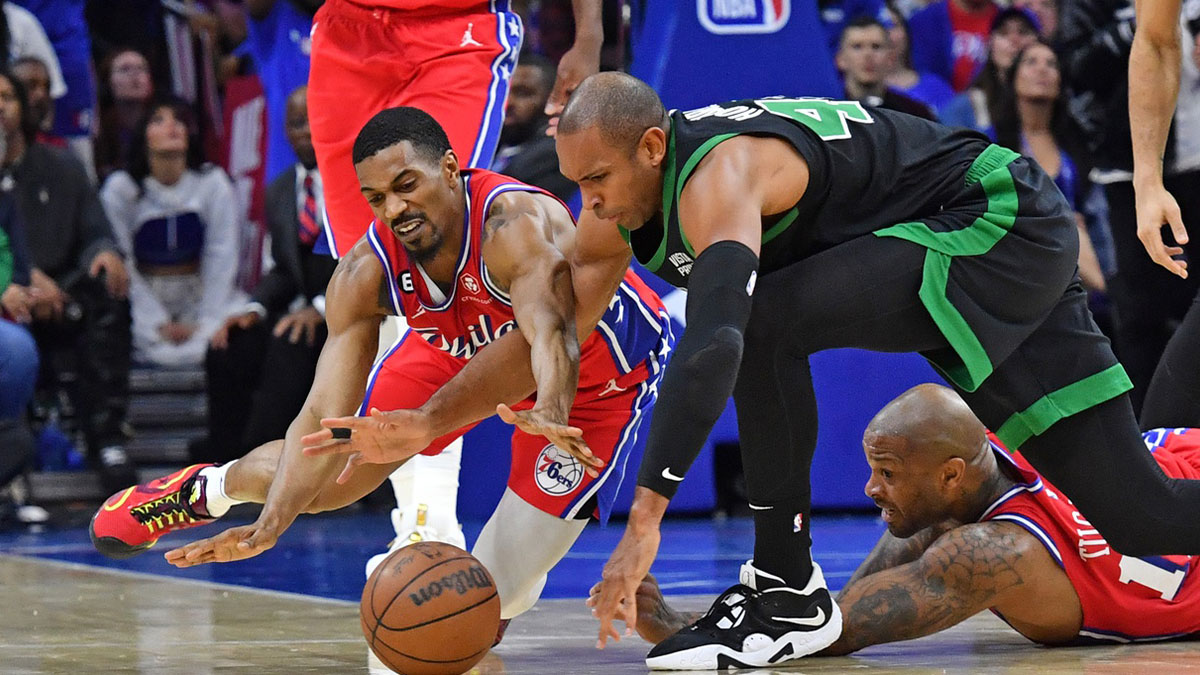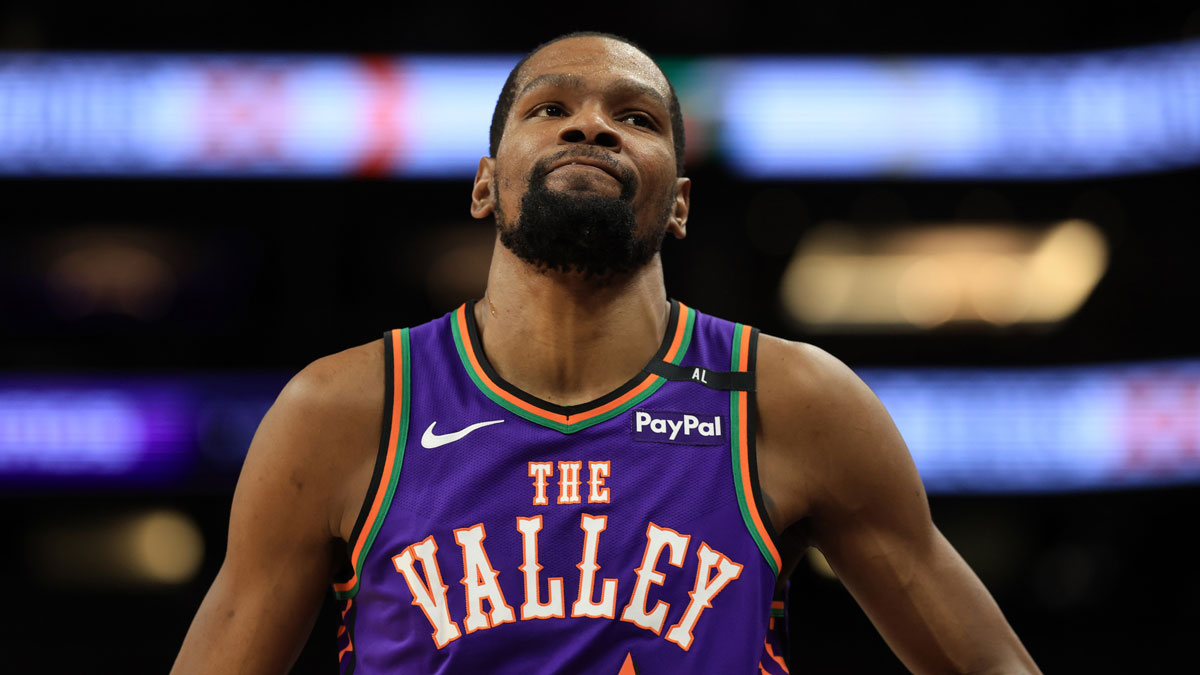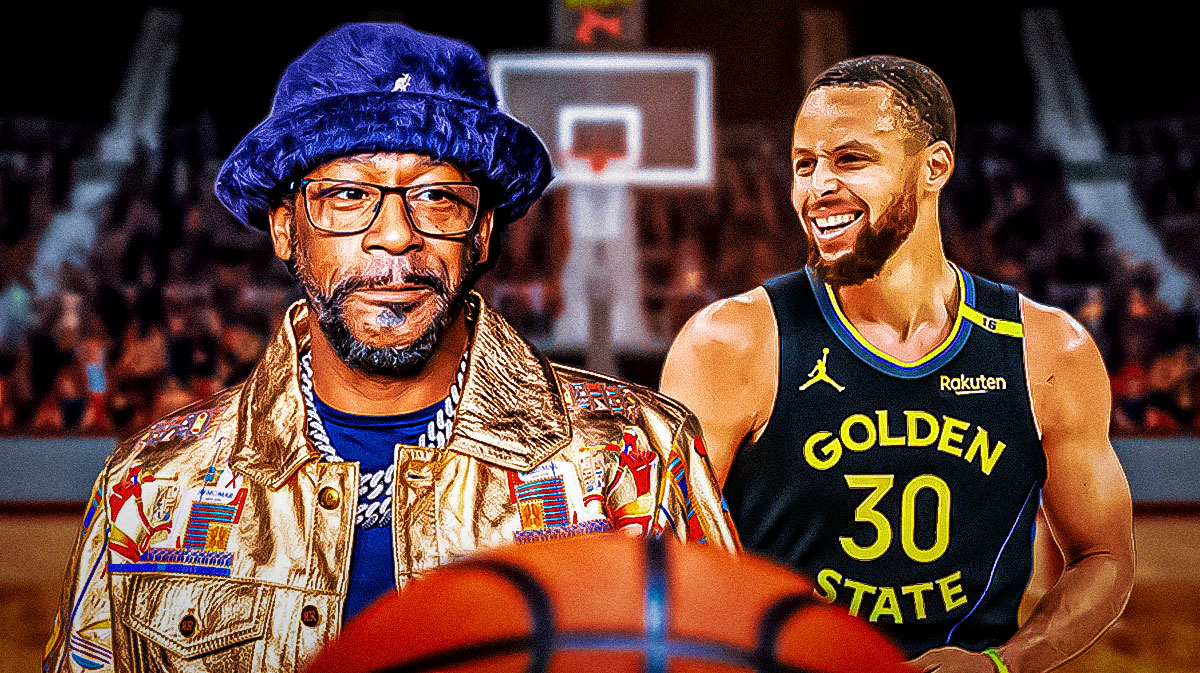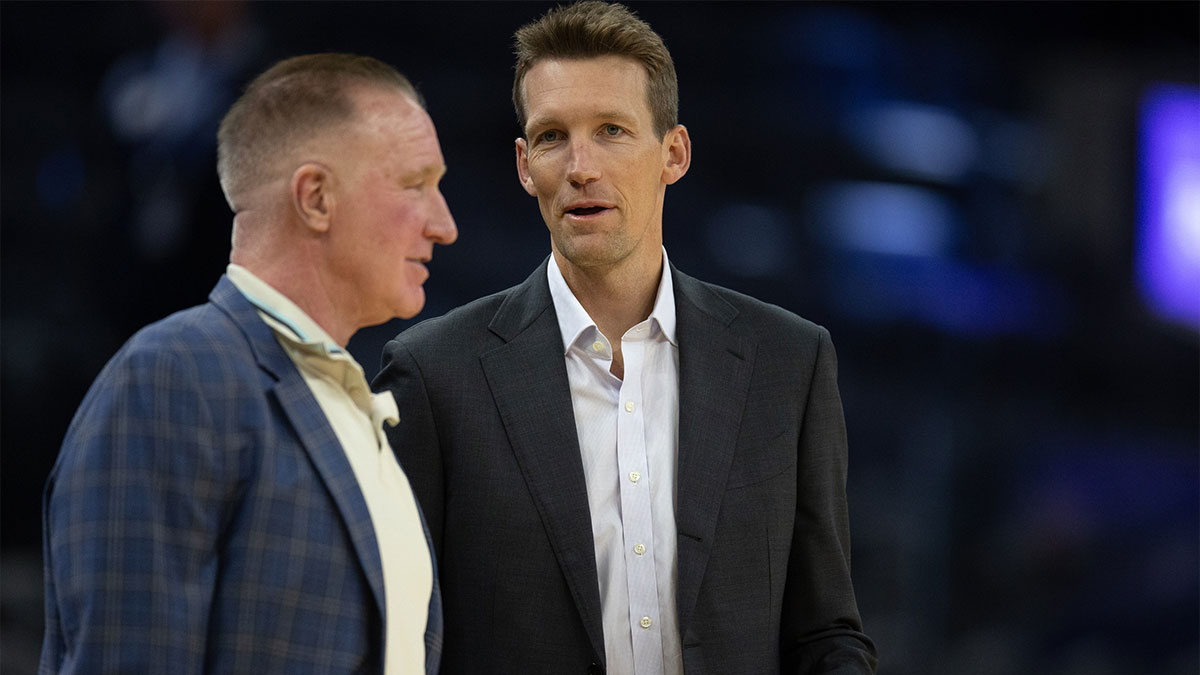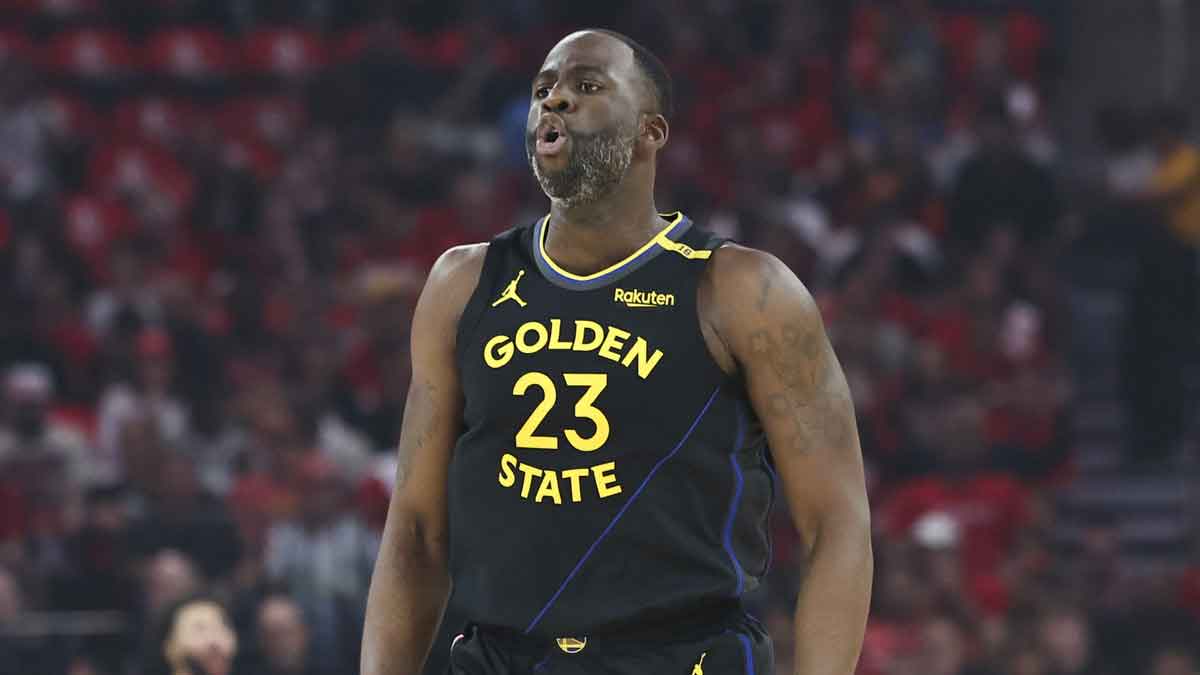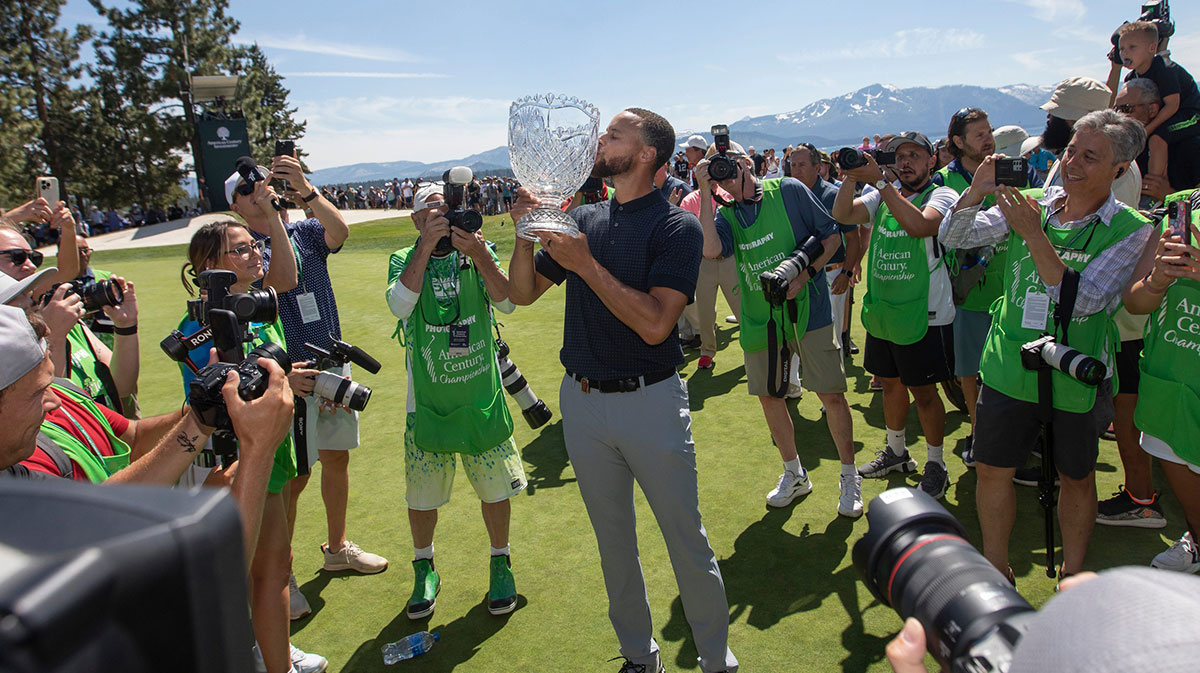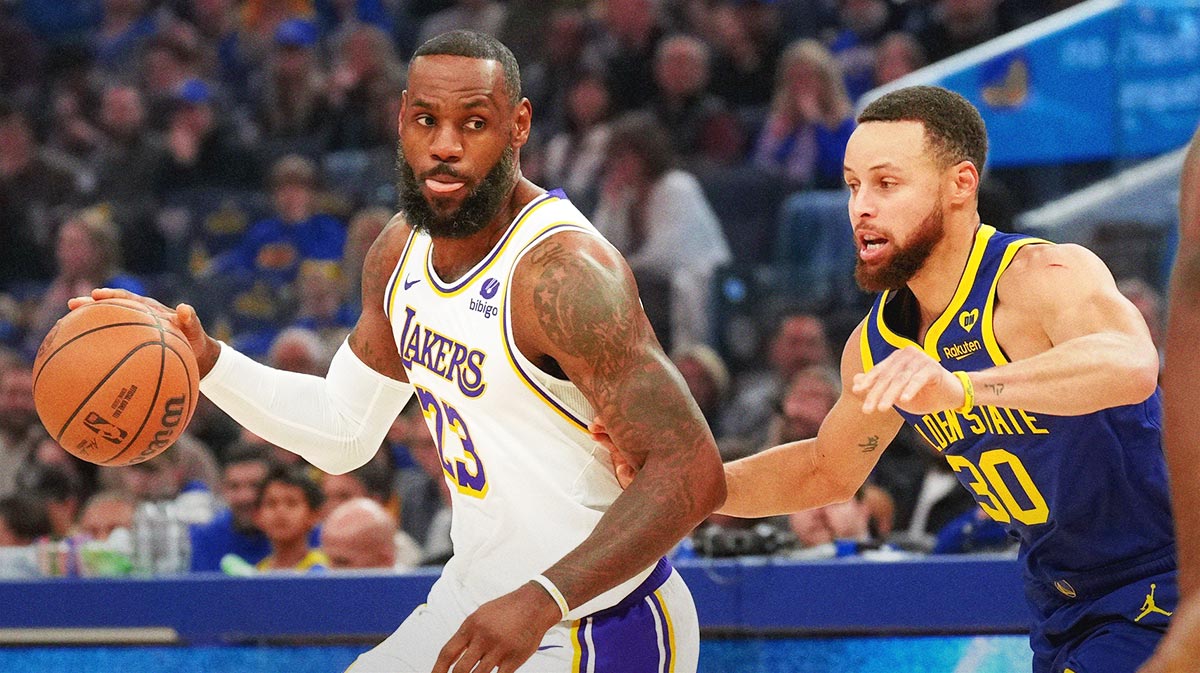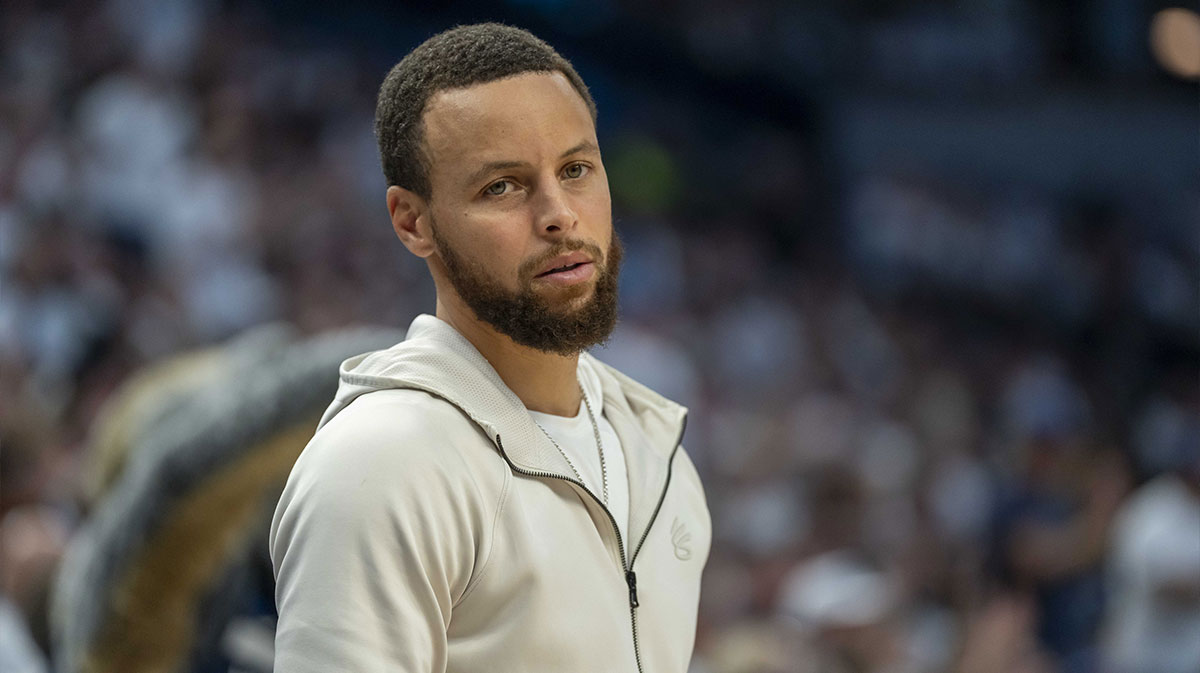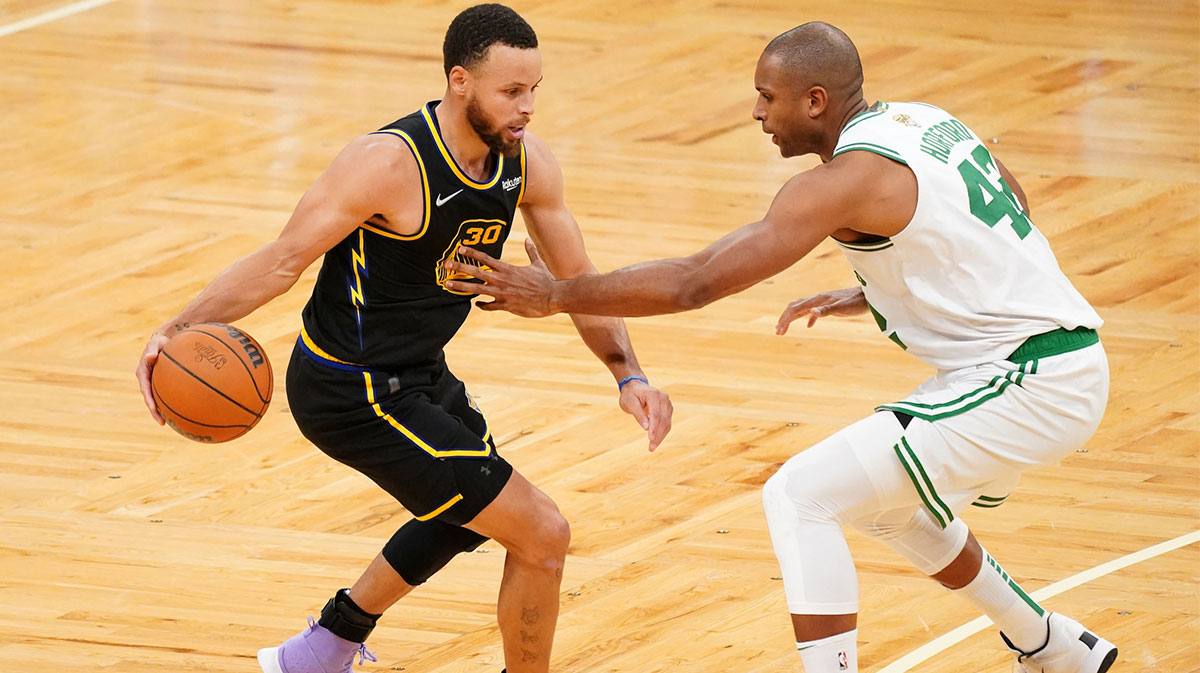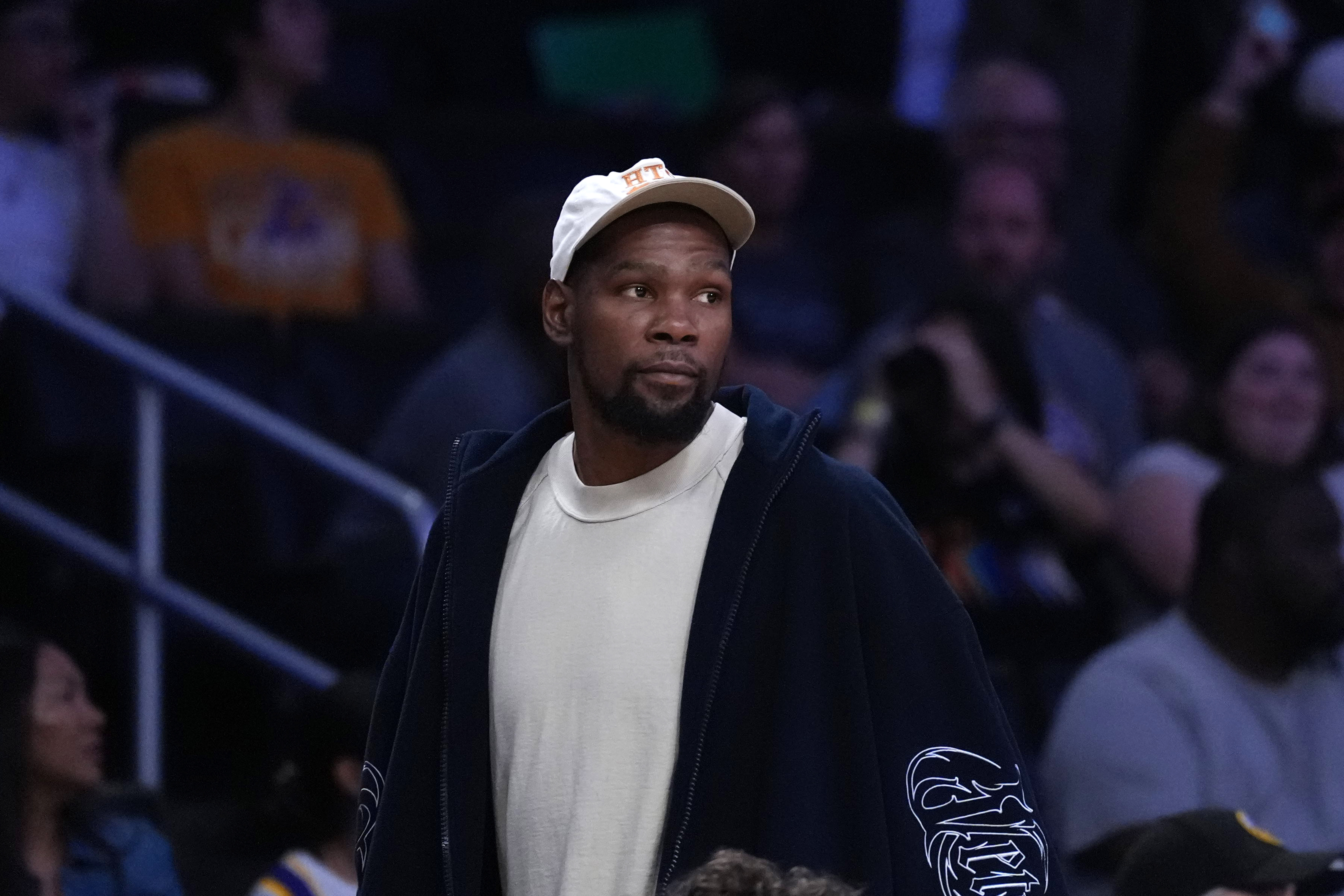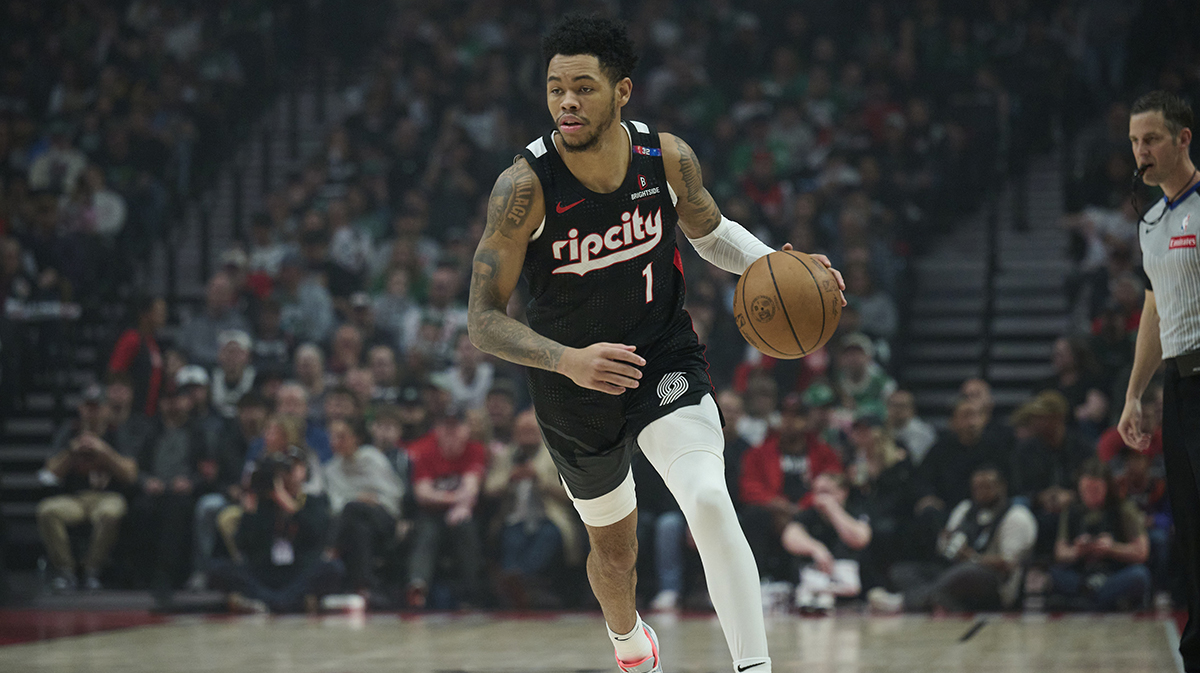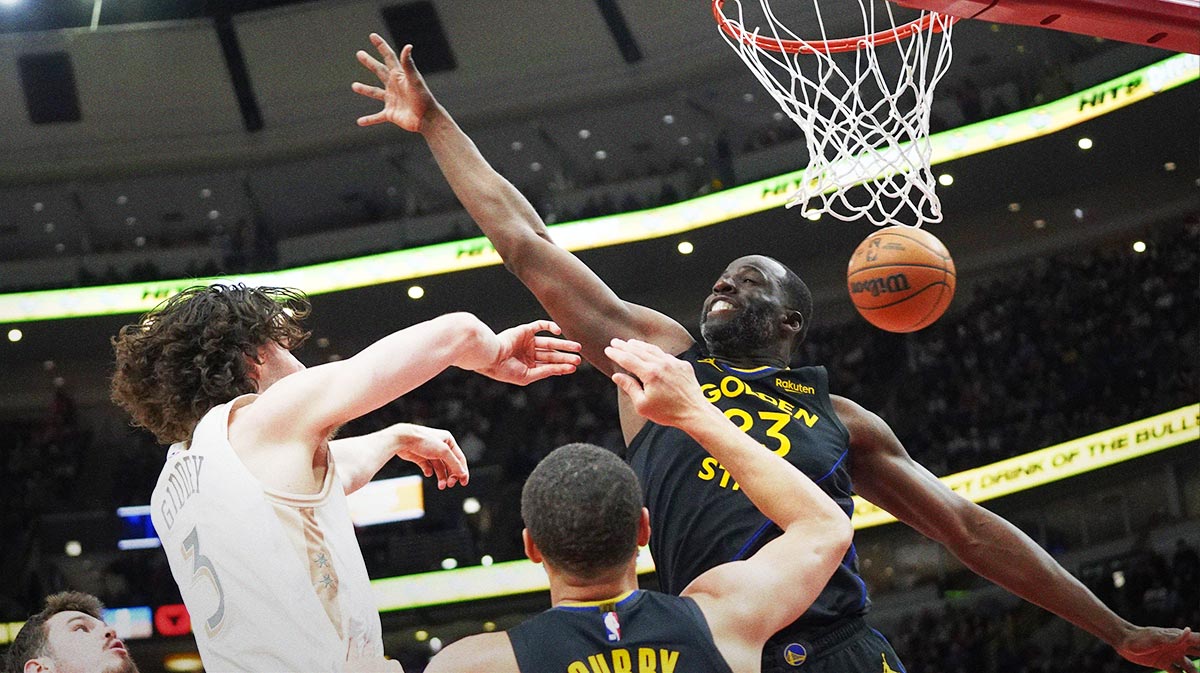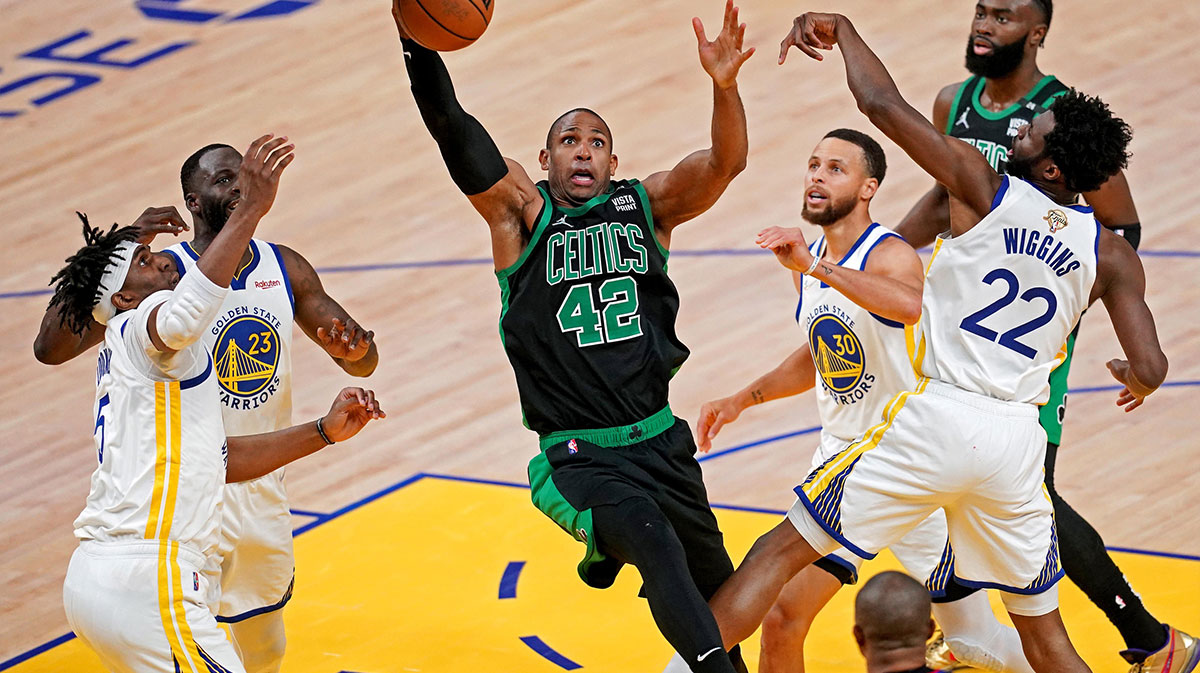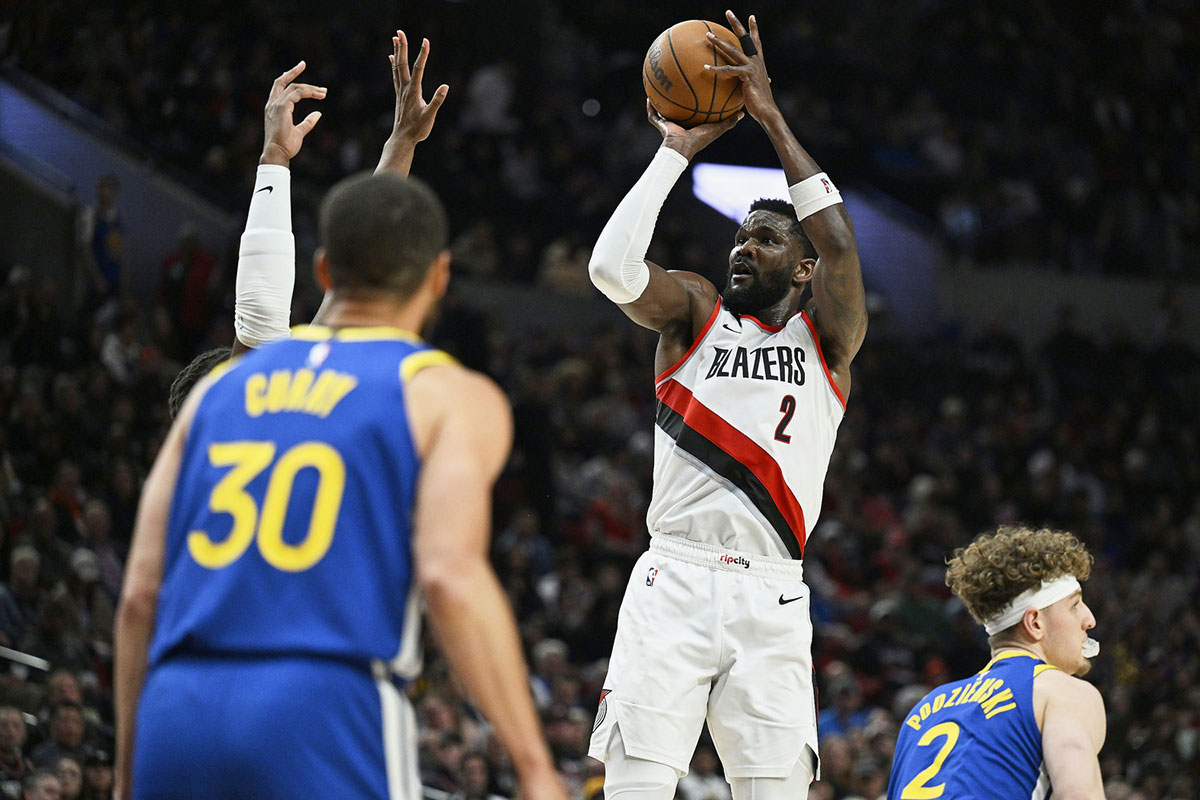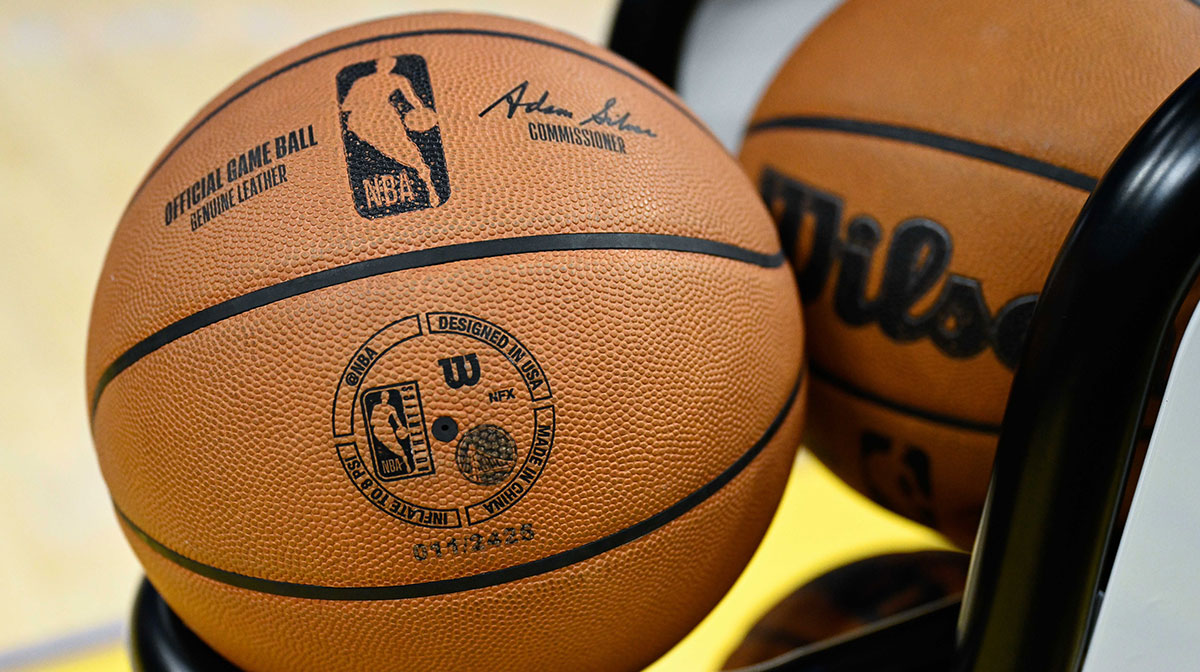Despite their abundance of star power, the Golden State Warriors are a collective. They're a team. Since Steve Kerr arrived as coach in the 2014-15 season, the Warriors have led the league in assists every year. They run a motion offense that has constant ball movement and player movement.
Ask anyone their biggest weakness, and the common answer is that the Warriors, themselves, are their own biggest foes. Only a miraculous comeback by the Cleveland Cavaliers in 2016 has prevented the Warriors from being crowned champs four years in a row.
But now, seemingly, a team has figured out how to stop them. In last year's Western Conference Finals, the Houston Rockets had a three-games-to-two lead before losing Chris Paul and the series. This year, the Houston Rockets have the Warriors tied at two games apiece in in a heated second round matchup.
While a myriad of factors have come into play, from P.J. Tucker's grit to Stephen Curry's cold shooting, one key stands out: the isolation play.
On both offense and defense, the isolation play has done some serious damage to the Warriors.
Warriors' Offense
The Warriors typically prefer to have the ball hopping around, with their players running off of endless off-ball screens. When they fall into the trap of isolation, it's usually Kevin Durant who iso's to bail out a bad possession.
In the regular season, Stephen Curry averaged 1.3 possessions a game in isolation, and Kevin Durant had 3.7 possessions in iso, which ranked ninth in the league. The Warriors prefer, though, to stay away from isolation plays because the other four players on the court are just standing around while KD goes to work one-on-one.
And while Durant has the skill set to score in isolation any time he wants, the Warriors' offense sputters and stalls. They get bogged down in a half-court slog–a far cry from their usual fast-paced player-movement system. As a result, players don't get touches, and elite shooters like Steph Curry and Klay Thompson are relegated to standing in the corner waiting for something to happen.
In the playoffs, the Warriors' isolation numbers are up. Kevin Durant's possessions per game in iso has jumped from 3.7 to 6.1. Curry's time in isolation has also leaped from 1.3 possessions a game to 2.5 in the playoffs.
Is it a coincidence, then, that the Warriors' league-leading 29.4 assists/game in the regular season is down to 24.8 assists/game in this series against the Rockets? And that the Warriors are shooting 32.3% from three-point range this series, as opposed to their third-ranked 38.5% in the regular season?
Klay Thompson, in particular, has struggled mightily in this series. Part of that is due to the fact that he's one of the defenders trying to dance with James Harden on defense. But the increased isolation numbers for the Warriors don't bode well for Thompson, who received 91.7% of his made three's off an assist in the regular season.
Thompson thrives off of off-ball screens, but because of the lack of ball movement, Thompson is scoring only 15 points per game in this second-round series, and shooting an abysmal 30% from three-point land.
Part of the lack of movement comes from the Rockets' scheme of switching all screens. They have players long enough to discourage three's, and they're not allowing any daylight for Warriors' shooters.
In addition, 63% of Steph Curry's made field goals this series have come unassisted. That's a drastic rise from the 41% of his made field goals coming unassisted in the regular season.
The increase in isolation has led to a lack of ball movement, a struggling Klay Thompson, and ultimately, a tied series.
Warriors' Defense
The Warriors pride themselves on defense, usually. This season, their effort and focus has been lackluster, and their defensive rating ranked 11th in the NBA in the regular season at 108.5. In contrast, the Warriors were second in the league in defensive rating in Durant's first year with Golden State.
Defensive rating merely measures an opponent's points scored per 100 possessions. And in this series against the Rockets, the Warriors' defensive rating has jumped to 113.5, much higher than their regular-season average.
The Warriors thrive when Draymond Green can play free safety and roam the paint, helping from the weak side to alter a shot or deter a layup. With their core group having been together for the past few years, the Warriors know how to play defense on a string. Their off-ball pre-switching concepts to avoid getting Curry switched onto Harden takes a lot of constant communication, but the Warriors run it well.
However, the Rockets have been able to score consistently largely because of isolation. That's what the Rockets do; that's who they are. They averaged 22.4 possessions in isolation in the regular season, by far the most in the league. In the playoffs, Harden is spending 15.4 possessions per game in isolation, also by far the most in the league.
When Chris Paul isn't handling the ball and when the Rockets aren't running a pick-and-roll, the Harden isolation usually goes something along these lines:
https://streamable.com/3o5fu
First, Curry's man, who in this case is Austin Rivers, sets an on-ball screen for Harden. While the Warriors typically try to have Curry hedge and then recover back to his man, on this possession, it's a full switch.
Which is exactly what Harden is hunting for. After a couple dribbles, Harden drills the step-back three.
The Warriors typically excel in help defense, and notice the other Warriors in the possession. Andre Iguodala, who switched onto Rivers, is playing far off his man, ready to jump in the paint if Harden starts to drive. Draymond Green, who's guarding P.J. Tucker in the weak side corner, is also ready to help should Harden blow by Curry.
The Rockets run a simple exchange on the strong side, with Chris Paul going to the corner and Eric Gordon coming up to the wing. This only serves to keep the strong side defenders–Klay Thompson and Kevin Durant–occupied while Harden goes to work one-on-one.
The Warriors' help defenders are rendered useless though, when Harden can step back and nail a three any time he wants, over any victim he chooses.
In the regular season, Harden made a league-leading 4.4 three's a game off the dribble. When he isolates and goes to work, the former MVP has proven he can score anytime he wants.
The Warriors boast long defenders in Iguodala, Durant, and Thompson. But whether they're taking their turn on Harden, or the targeted Curry or Kevon Looney end up on him, Harden can dance around the perimeter and score with ease. The Warriors' team defense has no choice but to tip their hats to him.
Even when Harden drives by his man, and the help defenders come, Harden always makes the right decision to go with the floater, the lob, or pass to the open shooter.
The Warriors are a collective; they're a team. But Harden and the Rockets are taking them out of their element both on offense and defense. Because when the team starts to focus on the individual, they're not the team-centered powerhouse they know they should be.
And because of that, it's now that their de-throning has never seemed more real.

